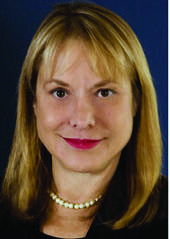When I first met Madeleine Albright in the early 1980s, she was still making dinner for the boys. The boys being the members of what we used to call the “priesthood”: the out-of-power Democratic national security team, which, with the exception of Madeleine, looked very much like the priesthood, then and now.
The priesthood used to gather regularly to sit down with visiting potentates eager to break bread with the opposition who might be in charge of the White House come the next election.
Of course, Madeleine already had the credentials to earn her a seat at the table. She had as good a Ph.D. as the boys, and was with Zbigniew Brzezinski in the White House along with the big guys. But still. She was a middle-aged woman in a man’s game, and as she explained to me, there was only one way to ensure that she would actually be invited to all the important dinners.
Cook them.
So she did, with grace and determination, with grit and sheer brain power, she determined to make it in the most masculine corner of presidential politics. And she did.
I was in charge of the Democratic Platform Committee in 1984, and neither the chair, Geraldine Ferraro, nor I were foreign policy experts. But our goal (by “our,” I mean a small group of women determined to make a difference; we called ourselves the “A Team” as a joke, because the A team in those days was all men) was to get a woman on the ticket. Our candidate was Geraldine Ferraro, and she needed to learn foreign policy.
Enter Madeleine. She taught her. She taught me. When then-nominee Fritz Mondale called me (of all people) to find out if we could get Gerri ready on foreign policy, I had a one-word answer: Madeleine. When I ran Michael Dukakis’ campaign for president in 1988, one of the first people I turned to for help was Madeleine. He was the long shot in that primary contest, and most of the priesthood was backing other candidates. When Dukakis emerged as the nominee, I had the great pleasure of watching the guys Madeleine had been cooking for for years sucking up to her in the hopes of getting closer to the candidate. It was delicious.
There was one moment in particular that stands out. We had been preparing for the first presidential debate. It was a grim carload as we left dinner, only to be turned away from the hotel where the press corps was staying because it was full. I was just as happy to avoid them, but Bob Squier, then the most successful Democratic ad man, was not so compliant. He got out of the front seat and told the bellman to check out who he was turning away. In the front seat, he said, you have the future president of the United States. And in the back seat, you have the future secretary of state.
Bill Clinton laughed. So did Madeleine. But it almost didn’t work out that way. When the names were first leaked of who was up for the opening, Madeleine’s name wasn’t on the list. But a funny thing happened next. All hell broke loose. Women had power in the Clinton White House, and they used it, and Madeleine took her rightful place. No one worked harder to get there. Or deserved it more.
But she taught this younger woman an important lesson. You do what it takes, and you do it with grace. That’s what we learned at Wellesley, our shared alma mater, and what Madeleine taught me. And by the way, she was a great cook. May she rest in peace. I was lucky to have such a wise and wonderful teacher.




